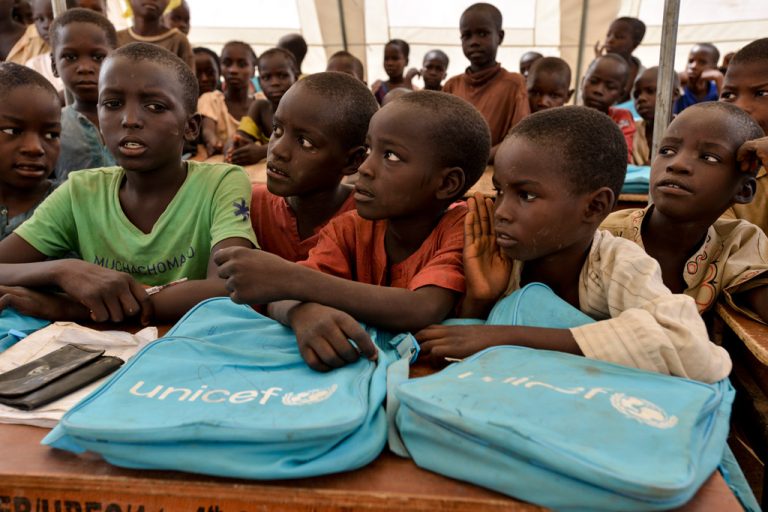The United Nations Children’s Fund (UNICEF) has supported the Kaduna State Primary Healthcare Board in providing critical health services to Kwarau, an underserved community in Gari Ward, Igabi Local Government Area.
Speaking during the outreach on Friday in Kaduna, Anne Carlson, Deputy Coordinator, UNICEF New York, said the exercise delivered essential services including malnutrition screening, immunization, birth registration, and general healthcare.
Carlson explained that the outreach was carried out in collaboration with the state government and other partners, targeting families with young children. She commended frontline health workers for their dedication in ensuring access to life-saving services.
Dr. Gerida Birukila, UNICEF Chief of Field Office in Kaduna, noted that residents of Kwarau usually travel over 10 kilometers to access healthcare. She said the state government supports mobile outreaches to serve such hard-to-reach communities.
“Many children are missing out on life-saving interventions due to lack of immunization. Taking services to faraway communities is increasing uptake,” Birukila said, adding that the outreach provided treatment for malnutrition, immunization, and other ailments.
She thanked the Kaduna State Government and partners for their support and expressed UNICEF’s commitment to expanding mobile services to bring healthcare closer to vulnerable communities.
Aisha Idris, Local Immunization Officer for Igabi LGA, said the outreach focused on zero-dose children (0–11 months). She added that Ready-to-Use Therapeutic Foods (RUTF) were given to mothers of malnourished children, while iron folates were provided to pregnant women.
She described Kwarau as underserved and hard-to-reach, noting that the intervention was both timely and impactful.
The Village Head of Kwarau, Umaru Rufa’i, expressed gratitude to UNICEF and the Kaduna State Government for the gesture. He said his community welcomed all forms of development that benefit the people.
Rufa’i explained that rural communities frequently battled diseases and needed consistent medical interventions. He pledged to mobilize neighboring villages for future outreaches if the programme was extended.


